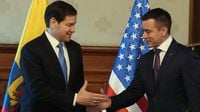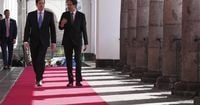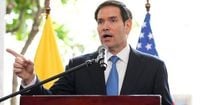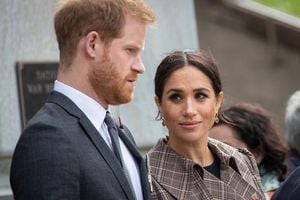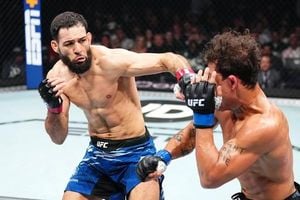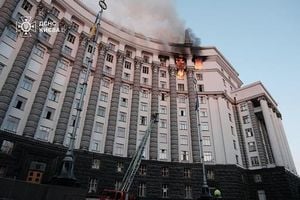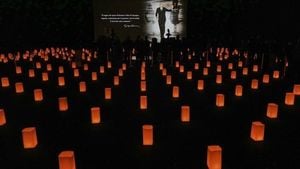On September 4, 2025, the United States took a dramatic step in its fight against international crime by designating two of Ecuador’s most notorious gangs, Los Choneros and Los Lobos, as foreign terrorist organizations. The announcement, made by U.S. Secretary of State Marco Rubio during his visit to Quito, Ecuador, marks a significant escalation in the Trump administration’s ongoing campaign against Latin American cartels and transnational crime. The move comes on the heels of a U.S. military strike in the southern Caribbean, where a vessel allegedly operated by Venezuela’s Tren de Aragua gang was destroyed, killing 11 people. This operation—and the subsequent policy changes—have sent ripples through the region, raising both hopes and anxieties about the future of U.S. involvement in South America’s drug wars.
Secretary Rubio’s visit to Ecuador was anything but routine. According to TNND and the Associated Press, his trip was overshadowed by the recent military strike, which targeted a suspected drug-running ship. U.S. officials assert the vessel’s cargo was bound for the United States, and Rubio defended the decision to destroy the ship, stating, “Instead of interdicting it, on the president’s orders, we blew it up. And it’ll happen again. Maybe it’s happening right now, I don’t know, but the point is the president of the United States is going to wage war on narco-terrorist organizations.” He added, “Interdiction doesn’t work,” highlighting a shift toward more aggressive tactics.
The terrorist designation of Los Choneros and Los Lobos opens a wide array of options for U.S. authorities. As Rubio explained, the move allows for targeted killings, asset seizures—including properties and bank accounts in the U.S. linked to gang members—and enhanced intelligence sharing with Ecuadorian counterparts. “We’re aligned as key partners on ending illegal immigration and combatting transnational crime and terrorism,” Rubio said on social media, emphasizing the strategic partnership between the two nations.
Ecuadorian President Daniel Noboa welcomed the U.S. decision, expressing his administration’s commitment to the fight. “With their (the U.S.) support we will remain firm in our fight to recover our country,” Noboa said, thanking Rubio for U.S. efforts to “actually eliminate any terrorist threat.” The Ecuadorian government has faced a relentless surge in violence since the COVID-19 pandemic, much of it attributed to these two gangs. Los Choneros and Los Lobos have been blamed for contract killings, extortion, and drug trafficking, with their influence extending even into the nation’s prison system—where hundreds have died in brutal clashes since 2021, according to reports from Los Angeles Times and the Associated Press.
The timing of the U.S. announcement is notable. Just months earlier, Ecuador’s most powerful drug lord—leader of Los Choneros—was recaptured after a daring escape from a maximum-security prison in 2024. He was extradited to the United States in July 2025 and now faces multiple drug trafficking and firearms charges. Meanwhile, Los Lobos suffered a blow when Carlos D, alias El Chino and the group’s second-in-command, was killed in Portoviejo earlier this year. Despite these setbacks, violence and instability have continued to plague Ecuador, with local and transnational crime groups vying for control over lucrative drug routes.
The United Nations’ latest World Drug Report underscores the gravity of the situation. According to the report, South American countries—including Colombia, Ecuador, and Peru—saw larger cocaine seizures in 2022 than the previous year. The report points out that Ecuador, in particular, has experienced a wave of lethal violence linked to both domestic and international criminal organizations, especially those from Mexico and the Balkans. The U.N. also notes that while Venezuela’s role in the trade has been spotlighted by Washington, its influence is not as pronounced in the data. Rubio, however, dismissed these findings, declaring, “I don’t care what the U.N. says. I don’t care.”
Why has Ecuador become such a hotbed for drug trafficking? The answer lies in a mix of geography, economics, and politics. The country is the world’s largest exporter of bananas, shipping about 7.2 million tons annually by sea. This thriving industry has been exploited by traffickers, who use banana-filled shipping containers as cover for smuggling cocaine. The problem has worsened since the COVID-19 pandemic, as traffickers have expanded operations in the country, taking advantage of Ecuador’s use of the U.S. dollar, its relatively weak legal institutions, and a network of established gangs eager for work. The breakup of Colombia’s FARC in 2016 and subsequent shifts in coca cultivation have also pushed criminal activity closer to Ecuador’s borders, further complicating the landscape.
Rubio’s trip to Latin America included talks with Mexican officials, where he highlighted progress on border security, cartel dismantling, and economic cooperation. However, the U.S. military strike and the new terrorist designations have drawn a mixed response from regional leaders. Many, especially in Mexico, have stopped short of outright condemnation but have warned against expanded U.S. military involvement, citing concerns over national sovereignty and the region’s painful history with American intervention. Mexico’s Foreign Affairs Secretary Ramón de la Fuente stressed his country’s preference for “nonintervention, peaceful solution of conflicts.”
Back in Ecuador, the Trump administration is also exploring a controversial proposal: using the country as a destination for deporting non-Ecuadorian migrants from the United States. While U.S. officials have voiced interest in securing such an agreement, the status of negotiations remains murky. This proposal, along with the stepped-up military posture, has fueled debate within Ecuador and across Latin America about the risks and rewards of deepening security cooperation with Washington.
Despite the controversy, U.S. officials remain steadfast. Secretary of Defense Pete Hegseth told Fox News, “This is a deadly, serious mission for us and it won’t stop with just this strike. Anyone else trafficking in those waters who we know is a designated narco-terrorist will face the same fate.” Rubio echoed this sentiment, stating, “No, the president has said he wants to wage war on these groups because they’ve been waging war on us for 30 years and no one has responded.”
As Ecuador grapples with rising violence and shifting criminal allegiances, the U.S. designation of Los Choneros and Los Lobos as terrorist organizations signals a new phase in the international fight against organized crime. Whether these tough new measures will bring lasting security—or spark unintended consequences—remains to be seen. For now, both nations appear determined to confront the threat head-on, with the world watching closely.
